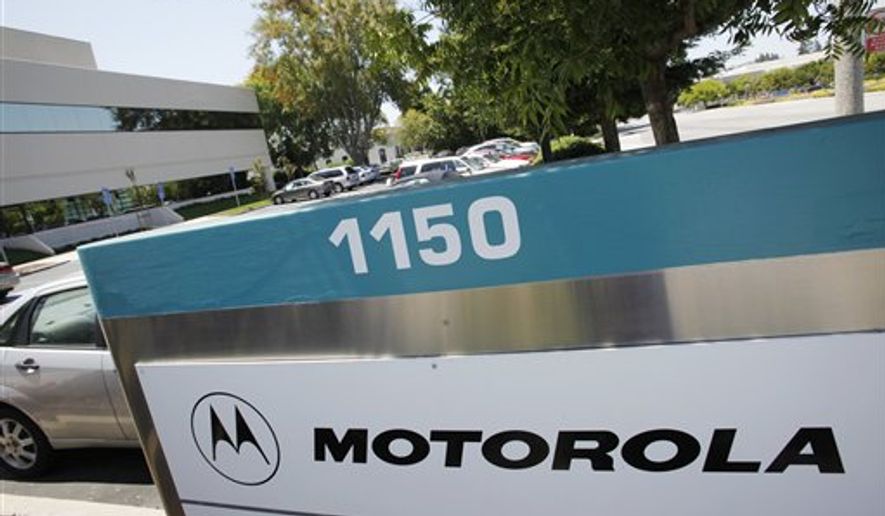A federal grand jury in Chicago has indicted the Chinese telecommunications firm Hytera Communications Co. Ltd. for conspiracy in a scheme to steal Motorola walkie-talkie secrets, the Justice Department announced Monday.
Hytera has been linked by U.S. intelligence to Chinese police and intelligence services and is accused of the trade secrets theft of Motorola’s proprietary digital mobile radio technology.
Spokesmen for Hytera did not immediately respond to a request for comment on the filing, which comes as the FBI says it is investigating a raft of cases involving Chinese theft of U.S. corporate intellectual property.
In addition to Hytera, several former Motorola employees that were hired by Hytera were indicted. However, the names of the former employees were redacted in the indictment unsealed in U.S. District Court in Chicago.
According to court documents, Hytera has been under investigation since 2019 and hired former Motorola employees as part of a plan to obtain the digital radio secrets.
Police and emergency services were required to shift from analog radios to digital in 2004 by the Federal Communications Commission, prompting both Motorola and Hytera to develop digital radios.
“At Hytera’s direction and for the benefit of Hytera and others, the individual defendants took proprietary and trade secret information from Motorola without authorization,” the indictment states.
“Motorola’s proprietary and trade secret information was used by Hytera and the individual defendants to accelerate the development of Hytera’s [digital mobile radio] products. As a result, Hytera’s [digital mobile radio] products relied on and contained Motorola’s proprietary and trade secret information.”
The technology included software source code, information on the design and implementation of radio software; testing information, radio squelch design, and frequency generation, transmitter and circuit design techniques for radio hardware.
Hytera hired the former Motorola employees by paying them larger salaries and providing more benefits, the indictment said.
The defendants also made false statements to investigators and hid their employment with Hytera.
The theft included both documents, paper and electronic.
The activities began in June 2007 and involved the illicit transfer of around 11,400 Motorola documents. Hytera began selling its radios with stolen Motorola technology in 2010, the indictment states.
Prosecutors included portions of email exchanges outlining the alleged conspiracy in the indictment.
In one 2008 email, a former Motorola employee stated: “”It is going to cause a lot of problem as we are technical people and bring along a lot of knowledge. We have/will signed the [non-disclosure agreement] and some of our lies may cause problems once Motorola finds out.”
Several pages of the indictment relating to the people involved was blacked out. Motorola filed a civil lawsuit against Hytera in 2017 alleging theft of digital radio secrets.
Hytera is well-known to U.S. intelligence and other government agencies for its links to Chinese intelligence and security services.
In 2017, a U.S. intelligence agency reported that Hytera was working with a Chinese company, High-Dimensional Data Technology (HDDT) involved in “behavioral security” that was developing encrypted communication technology for Chinese police and security services and the Chinese military to use for both intelligence and counterintelligence purposes..
A photo on the HDDT website showed a Hytera employee briefing a visiting delegation of Cuban security officials.The technology from HDDT is designed for transmitting secret information and for tracking “
The company specializes in “concealed communications” hides audio, visual, or document-based information inside normal electronic images. The technology allows spies and their agents to communicate clandestinely over public networks and social media.
Defense officials disclosed to The Washington Times in 2017 that Hytera had raises Pentagon concerns that China will electronically infiltrate U.S. military systems through Canada.
Hytera that year purchased Canada’s satellite communications firm Norsat, that worked with the U.S. military.
Norsat in the past provided the U.S. military with the Defense Video and Imagery Distribution System, a mobile satellite system known as DVIDS Direct, that is used by public affairs units to transmit video and photos.
Last year, the FCC identified Hytera as one of five Chinese telecommunications companies that was “deemed to pose an unacceptable risk to the national security of the United States.”
In 2020, Congress passed legislation that banned the U.S. government from buying goods from five companies, including Hytera, along with Huawei Technologies, ZTE, Hickvision and Dahua Technology over electronic spying worries.
• Bill Gertz can be reached at bgertz@washingtontimes.com.




Please read our comment policy before commenting.